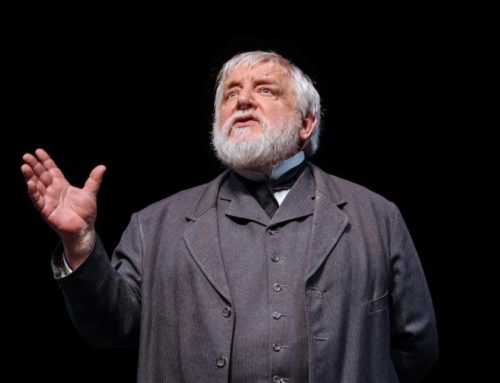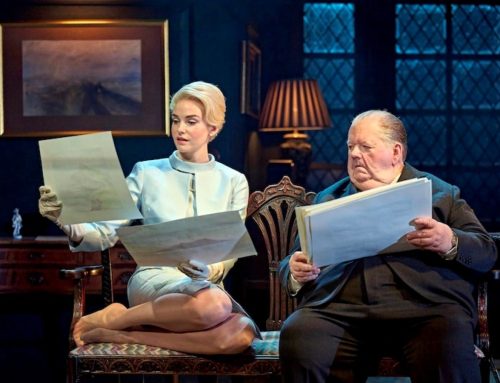Ché Walker’s Wolf Cub cannot quite decide whether it wants to be about Reagan’s America, or a feral child gone bad.
11 April 2022
Ché Walker’s monologue, currently running downstairs at the Hampstead Theatre, opens with the protagonist, Maxine, recounting as a 9-year-old how she witnesses her father beating her mother’s presumed lover unconscious. So, you know fairly quickly that this story is not going to be about the American dream.
We see Maxine again at various ages from 12 to 24 and it is fair to say things do not get much better for her. Motherless, and in the loveless care of an abusive, hard-drinking, gun-toting, Reagan-loving father, the teenage Maxine finds few sources of affection or spiritual connection.
A rare camping trip out to the woods with dad sees the young teen Maxine watch the birth of a wolf cub. The visceral bond she observes between wolf mother and offspring haunts her throughout the rest of the play, and it is into the figurative and psychological form of a wolf cub that she retreats at various points in later life. It is only when “My eyes turn yellow. Fur springing out all over me and the fangs snapping out from my gums” that Maxine can deal with the hell she has to live through.
At 16, dad moves the now almost feral Maxine to Los Angeles. Amy Jane Cook’s set combines a wrecked LA road sign with city freeway torn asunder by earthquake damage, so it is fairly clear things will not work out there for Maxine either. Her emerging sexual appetite and need for emotional attention fixates on a Latino schoolboy cum small-time drug dealer, who it transpires seems to have business dealings with dad. Things do not work out for either man.
Adult Maxine’s descent into drug-dealing madness is set against the crack epidemic in early 80’s America, which was funded and part-tolerated as the price of Reagan’s CIA campaign against central American leftism. Writer Che Walker has a political point here about how 80’s conservatism created an epidemic, one which has already been well mined in TV series such as ‘Snowfall’.
The problem is that there are really two stories going on here. The first is a personal story of a savage and untamed child metamorphosing into the comfort of lycanthropy. The second is a political story of how Maxine’s connections with corrupt cops, a drug-lords, a CIA operative, and a local crack-seller contributed the destruction of a generation of America’s underclass. What is missing is a convincing connection between both narratives.
Perhaps if Walker had focussed on one or other theme, the personal or the political, the result might have felt less diffuse and unfocussed. I felt sometimes Wolf Cub might have worked more easily within the space provided by a short story, rather than a play.
The he-said, she-said nature of the dialogue in monologues can sometimes drag without a quality actor at the helm. Thankfully, Clare Latham does not disappoint. She finds enough complexity in the damaged Maxine to keep the audience engaged for 85 minutes, and ensures the protagonist never completely loses her connection with humanity – whether as wolf cub or drug-dealer.
Written and directed by Ché Walker,
Performed by Clare Latham.
Duration 85 minutes, no interval
Full Disclosure: I paid full box-office price for the ticket.






